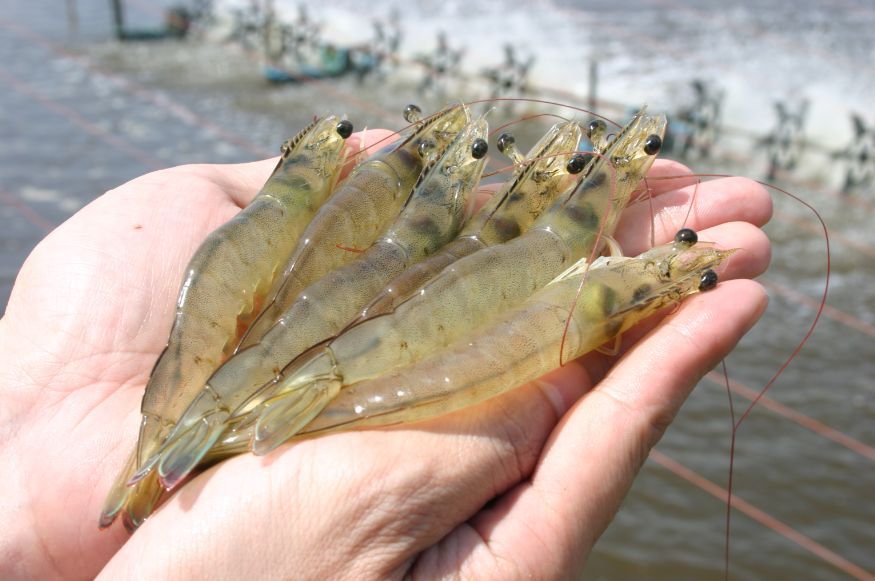Importance of the hepatopancreas

Disease and production problems vary during the different phases of shrimp culture. One of the most important criteria for a successful culture operation is insured to maintain good health of the shrimp. The environment can have a significant impact on shrimp health, growth and production. Success of culture depends, totally maintaining the good health condition in shrimp with proper functions of various organs.
1. Secretion of digestive enzymes and absorption, storage of nutrients.
The intestine of shrimp is an important place for the digestion and absorption of nutrients, but the digestive enzymes in the intestine come from the synthesis and secretion of the hepatopancreas. Only a healthy hepatopancreas can ensure nutrients.
The fat reserve is the most important energy reserve of prawns. Along with the fat reserve, it is accompanied by the reserve of a large number of fat-soluble vitamins and sterols, and other fat-soluble substances. Fat-soluble vitamins, etc. provide basic guarantees for shrimp to resist stress (antioxidation) and resist stress (environment, metabolism, infection, etc.).
2. Nutrient synthesis, a transformation function
The hepatopancreas is an important nutrient metabolism center, which converts the absorbed nutrients and synthesizes its own nutrients, which is conducive to growth. A healthy hepatopancreas can effectively protect nutrition metabolism, known as the chemical factory of life
3. Detoxification and inactivation function
While the intestines absorb nutrients, trace amounts of toxins and very few pathogenic microorganisms will inevitably enter the hepatopancreas along the way of nutrient absorption, and liver cells will detoxify and inactivate them to block their entry into the blood. Circulation to avoid oxidative and infectious damage to tissues and organs.
4. Hematopoietic and immune regulation
Blood cells play a role in transporting important substances such as oxygen and nutrients. At the same time, blood cells also contain important immune cells. Therefore, the hepatopancreas is an important hematopoietic and immune regulating organ in prawns. Shrimp is an invertebrate and does not produce antibodies. Its immune function mainly relies on immune cells and their secreted cytokines for phagocytosis, agglutination, encapsulation, and chemotaxis to achieve immune regulation.
5. Synthetic dehulling hormone function
Shrimp is a crustacean, and shelling is an important function to ensure growth. Every time shrimp is shelled, it faces the test of life and death. During the shelling, in addition to ensuring the basic reserve and metabolic utilization of calcium elements, it is necessary to ensure the normal synthesis of shelling hormones. and secretion to facilitate shedding. The unshelling hormone is synthesized in the hepatopancreas, and the health of the hepatopancreas is also one of the important foundations to ensure the smoothness of unshelling.
The health of the shrimp hepatopancreas is one of the key factors for successful shrimp farming. However, during the breeding process, it is often found that the liver and pancreas of the prawns are swollen, atrophied, red, swollen, and eroded.
Why is the liver and pancreas of shrimp prone to lesions during shrimp farming? The hepatopancreas of shrimp is the chemical factory of the body, responsible for detoxification, immunity, hematopoiesis, secretion of digestive enzymes, and physiological regulation. Once the hepatopancreas is damaged, it will affect the entire physiological activities of the shrimp.
In production practice, irregular operations such as sterilization, hypoxia, decomposition of toxins, acid production, etc., cause chronic poisoning of the hepatopancreas; unreasonable overfeeding and high-intensity stress increase the burden on the hepatopancreas and reduce its function; Eventually leading to low immunity, frequent disease. Mild damage to the hepatopancreas resulted in slow growth and uneven size; severe damage to the hepatopancreas resulted in the death of a large number of prawns, or even annihilation. It can be seen that in shrimp farming, the protection of the hepatopancreas is extremely important, so we must protect the shrimp hepatopancreas in shrimp farming.
Adding bile acids, bile acids can promote fat emulsification, digestion, and absorption, reduce fat deposition in the liver, and thus reduce the burden of hepatopancreas development.
Bile acids can bind or decompose endotoxins in the gut, prevent endotoxins from entering the liver, reduce the absorption of endotoxins in the gut and liver, and prevent endotoxins from damaging the gut, hepatopancreas, and even the entire shrimp body.
Bile acids enhance the function of the hepatopancreas and promote the detoxification function of the hepatopancreas, thus reducing the damage of toxic substances to the hepatopancreas during the development of the shrimp hepatopancreas.




